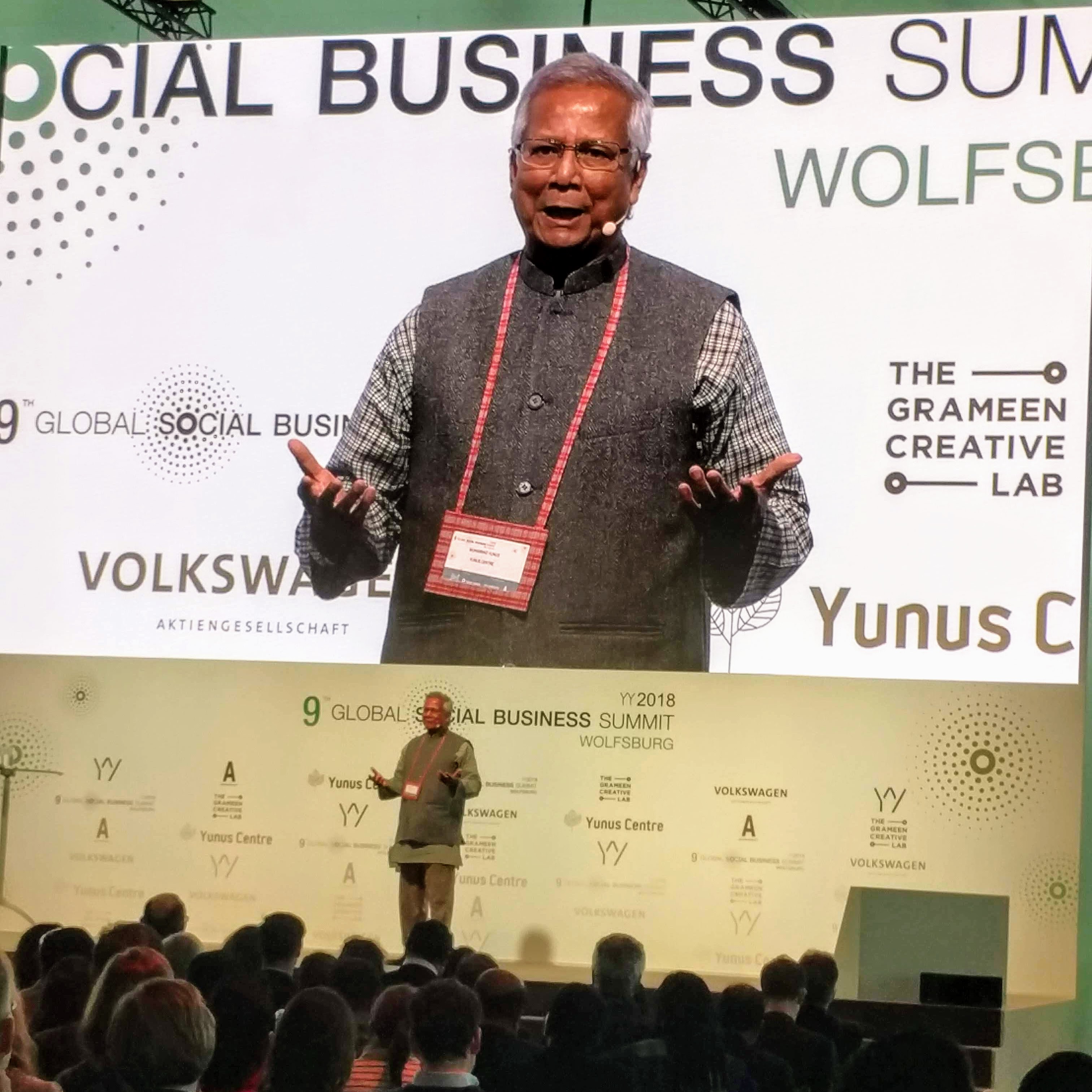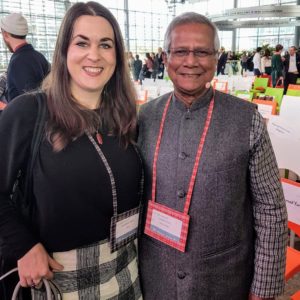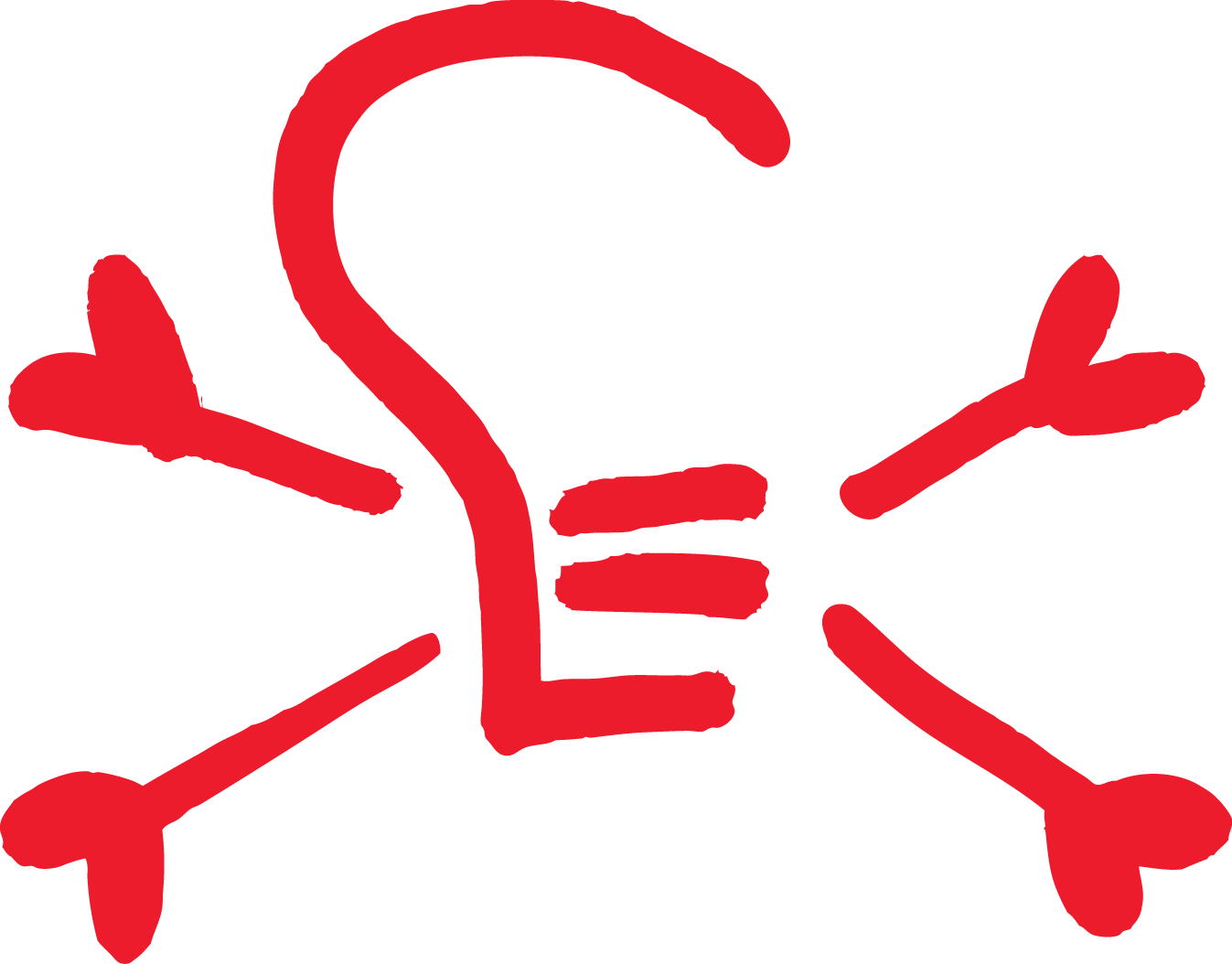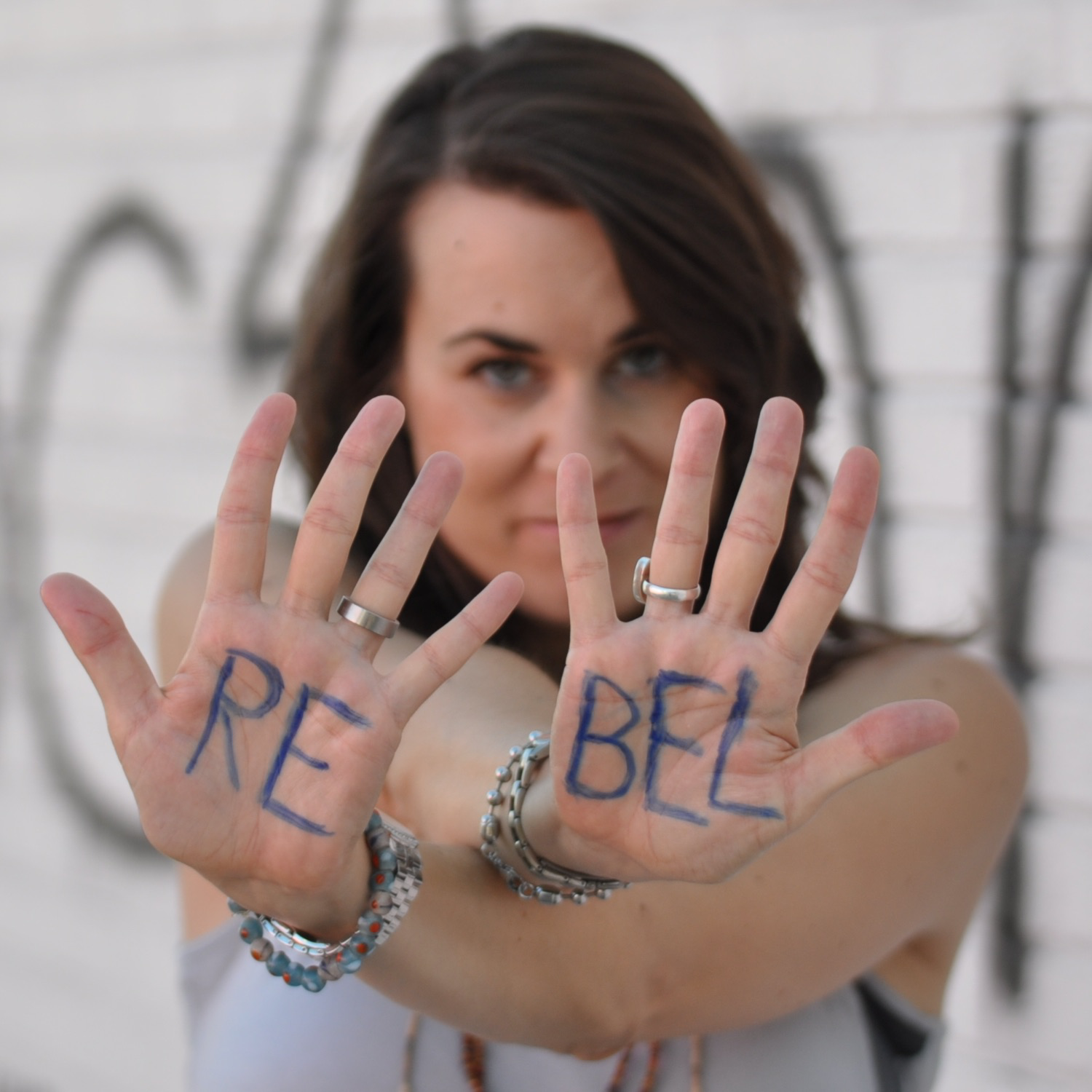
I recently attended the 2018 Global Social Business Summit (GSBS) in Wolfsburg, Germany where worldwide experts from private sectors, civil society, governments and academia came together to advance the idea of social business.
Social business believes in the power of business to end poverty. The idea was originated by Peace Nobel Laureate Professor Muhammad Yunus who started his journey to social impact in 1983 when he founded Grameen Bank, beginning a micro-finance revolution for which he won the Nobel Peace Prize.
What is social business?
A social business is a company that either creates income for the poor or provides them with essential products and services like healthcare, clean water or clean energy. These businesses operate exactly like other for-profit companies except for a few small differences: Unlike a charity, a social business generates profit and aims to be financially self-sustaining. Removing the need for fundraising allows social businesses to reinvest profits back into generating more impact.
The GSBS is the leading forum for social business bringing together Prof. Yunus, experts from the Grameen family and social impact entrepreneurs from around the globe to exchange knowledge and best practices, to connect and to spark new social business ideas and partnerships.
The 2018 GSBS was focused on bringing the United Nations Sustainable Development Goals (SDGs) into action. Designed to address sustainable solutions and ideas, the program aimed at advancing concrete actions through a variety of topic hubs, including plastic, sports, food and solidarity.
An Orbital Perspective On Social Impact
One particularly inspirational message was shared by former NASA astronaut Ron Garan who took the audience on a journey into space and inspired everyone to adopt a holistic perspective when it comes to solving humanity’s most pressing challenges.
“As I would routinely say goodnight to the planet, I would be hit in the gut by our beautiful planet and the reality of life on our planet. What will the next 50 years look like? How will we overcome the challenges we face?”
“As I looked back at our Earth from the orbital perspective, I saw a world where natural and man-made boundaries shrunk. I saw a world becoming more and more interconnected and collaborative, a world where the exponential increase in technology was making the impossible possible on a daily basis.”
Garan encouraged us to use the orbital perspective as we’re looking to solve our earthly problems: “When we explore topics affecting society, business, the environment, and our lives through the lens of the orbital perspective, trends, patterns, and truths emerge that can shift our understanding perception in a profoundly positive way.”
Remarkable Social Impact Projects
Some of the remarkable social impact projects shared on the two days of the GSBS main event were:
Solar Impulse Foundation
Dr. Bertrand Piccard, initiator and chairman, recalled his historic around the world flight together with André Borschberg in a solar-powered airplane without using a drop of fuel in 2016. Their 40,000 km around the world journey sent a hopeful message: that clean technologies can do more than we ever thought possible, reducing our energy consumption, protect natural resources and improve the quality of life on Earth.
Following the success of the first solar flight around the world, the Solar Impulse Foundation has set itself a new challenge: select #1000solutions that can protect the environment in a profitable way. Piccard’s message: “Each time I speak of protecting the environment to heads of state or government officials, they tell me that it is too expensive. This label is a strong message to them: solutions exist, and represent the biggest market opportunity of our century. An opportunity which cannot be missed.”
Peace and Sport
Founded in 2007 by modern Pentathlon Olympic Medalist and world champion Joël Bouzou, Peace and Sport is a worldwide organization that uses sport and its values as an instrument for peace. In less than 10 years, the dynamism of sport has already enabled us to reinsert child soldiers back into society, to help war orphans rebuild their self-confidence, to reintegrate refugees, and facilitate access to education.
Managing Director Laurent Dupont introduced the attendees to one of their social impact projects involving the power of sport: “Peace and Sport is currently working with the organization Amigos del Mar in Colombia to tackle poverty, social exclusion and environmental issues through surf.”
Africa Green Tec
Africa GreenTec designs and operates Africa‘s first eco-effective, sustainable and social swarm power plant. Founder Torsten Schreiber believes that 100% renewable energy is the key to development and a life worth living, especially in Africa.
More than 630 million people lack electricity in sub-Saharan Africa, according to the International Energy Agency. Schreiber and his team have figured out how to jam an entire solar power plant into a shipping container. It has sent its kits to off-grid villages in Africa, where they provide a new source of clean, affordable electricity after just 2 hours of assembly.
Precious Plastic
Dave Hakkens founded Precious Plastic in 2013 to boost plastic recycling around the world. The global community of people around Hakkens’ idea is passionate about fighting against plastic pollution. Knowledge, tools and techniques to recycle and reuse platsic are shared online, for free.
Hakkens has even created a Precious Plastic Bazar where eco-conscious consumers can buy precious plastic items.
Climate Seed
ClimateSeed is a social business helping companies around the world offset their CO2 emissions by contributing to quality-checked positive impact projects delivering voluntary carbon credits, which, in turn, contribute to the UN Sustainable Development Goals.
CEO Sebastien Nunes explained that ClimateSeed uses modern technology and strict due diligence processes to make the voluntary carbon market transparent, efficient, and secure. Voluntary carbon credits, such as Voluntary Carbon Units (VCUs) or Voluntary Emission Reductions (VERs), are issued by projects which have been verified outside of the regulatory market defined by the Kyoto Protocol. One VER or VCU is the equivalent of 1 tonne of CO2 emissions.
Social Business: What’s Next?

Prof. Muhammad Yunus + Nina Grenningloh Reyes of Communications Rebel
Professor Yunus opened the summit, participated in a number of panel discussions and inspired attendees to carry the idea of social business out into the world in his closing speech.
“Each individual person is very important. Each person has tremendous potential. She or he alone can influence the lives of others within the communities, nations, within and beyond her or his own time.”
Professor Yunus urged us to build a new civilization, one that is characterized by selfless business and solidarity. He highlighted the failure of the present civilization to solve problems of poverty, unemployment, degradation of environment, and healthcare and called for creating the foundation of a new human civilization to build a world of three zeros.
“Our efforts should be directed toward unblocking our minds. We must challenge the existing paradigms that led the world into this problem.”
~Prof. Muhammad Yunus on extreme wealth concentration

